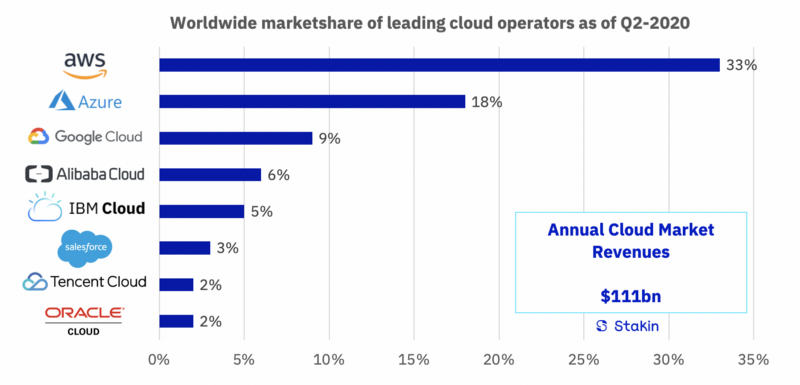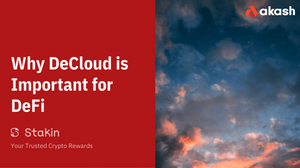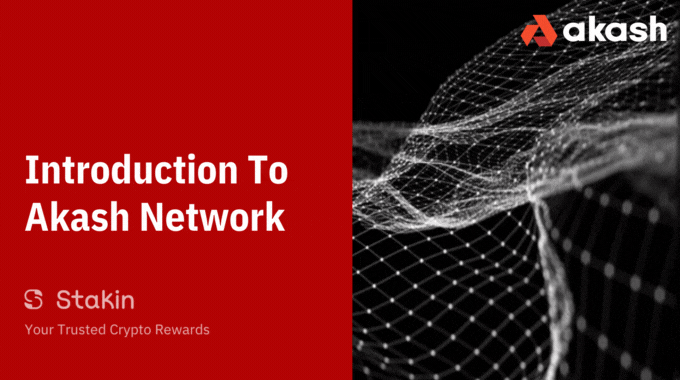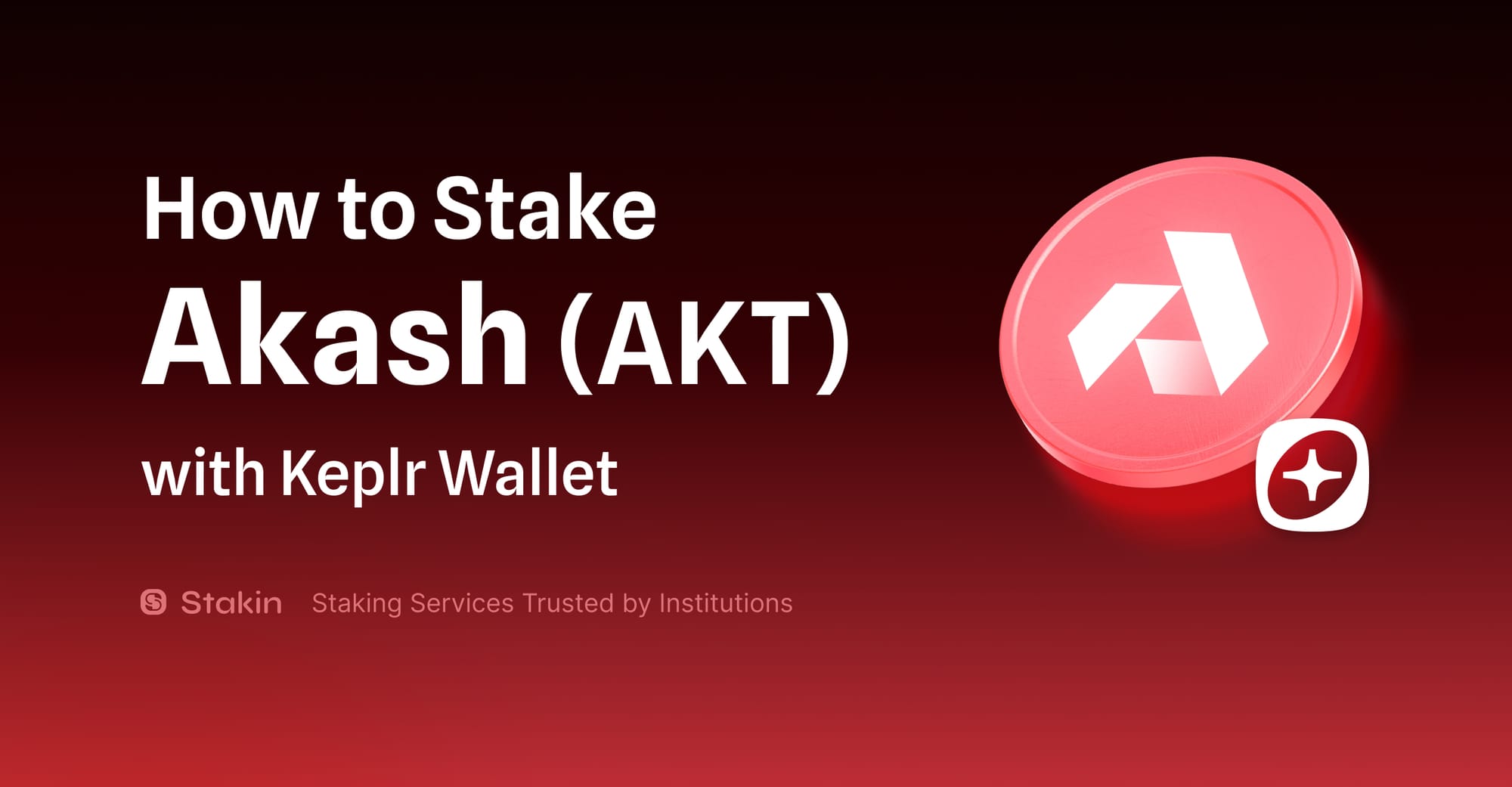With Akashian Phase 3 Challenge off to a great start, we would like to introduce you to DeCloud (Decentralized Cloud), and more specifically Akash. Akash is the first decentralized cloud computing marketplace, and a Proof-of-Stake blockchain protocol built with interoperability in mind using the Cosmos SDK.
While DeCloud has and will have a whole lot of use cases in most industries, we believe that it will find a specific fit with DeFi (Decentralized Finance) applications. If you’re not yet familiar with DeCloud or Akash, you will find our introduction to DeCloud helpful. Otherwise, you may skip this part and jump to Why DeCloud is important for DeFi.
What is DeCloud? ☁️
DeCloud runs on the blockchain and is an alternative to traditional centralized cloud operators. The Akash Network DeCloud is a marketplace where those who need computing resources and those who have computing capacity can get connected and enter into lease agreements.
For developers, DeCloud offers better flexibility, pricing and security than traditional cloud solutions. Just like other serverless technologies, it frees developers from setting up and maintaining server infrastructure. On the other hand, it enables anyone to use some of its underutilized computing resources, and become a cloud provider, offering new opportunities and making the cloud market more efficient. Much of the data centres worldwide are underutilized and can benefit from such a decentralized marketplace.
Why DeCloud is important for DeFi? 🏦
Oligopolistic Market
The cloud market is dominated by a few players running highly efficient operations with large scale infrastructure. This gives phenomenal power to these companies, through which most of the web transits nowadays. Despite the improved security some of these cloud providers offer, the overall industry remains opaque to the customers.

Diversified Downtime Risk
The traditional cloud operators such as AWS, GCP, IBM use large data centres as clusters to centralize their services and gain efficiency. However, this creates important single points of failure, which can sometimes result in catastrophic outages for whole regions. With DeCloud, applications run in containers at providers and can easily be switched between providers. Even if one provider is down, the application will still be running as another provider in the network can take the job. Needless to say, uptime is critical for financial applications handling billions in transactions.
Secure Infrastructure
Using a centralized cloud operator means that your data will be stored in a few places in some of these large data centres. Once again, these are single points of failure. The architecture of DeCloud avoids such single points of failure, by distributing blocks of data in containers to matched providers.
Flexible and Easy Deployment
Applications can be deployed in a simple and easy manner on Akash DeCloud. The marketplace offers increased flexibility, with the possibility to switch to other computing resources provider without the usual friction. Deploying applications on Akash network is very easy, and shifting provider as well. Have a look at their documentation and some of the deployment examples. Here is a guide to deploy a Serum DEX on Akash.
Blockchain-grade Privacy
DeCloud is pseudonymous and anybody can deploy applications without having to share his full identity. In the current cloud market, customers information can be legally accessed by local law enforcement bodies, or illegally if a provider is hacked.
Competitive Pricing
Cloud services make life easier for application developers, as they don’t have to worry too much about setting up a reliable and secure infrastructure. While this can save lots of time, resources, and upfront hardware costs, when applications scale on the cloud, they can sometimes end up being very expensive in the long-term. And once locked-in, it’s hard to internalize the infrastructure or switch to another provider. DeCloud, as stated by Akash, can be up to 10x cheaper compared to traditional cloud solutions. Akash enables such competitive pricing by bringing to market the available capacity from much of the underutilized compute resources. Anybody with extra compute capacity can become a cloud provider. From a customer perspective, it still offers the same kind of service, and with a serverless approach.
Aligned Values
DeCloud shares the same values as the DeFi projects out there. DeCloud has the potential to become to DeFi web apps what smart-contracts have enabled in the back-end: serverless, permissionless, trustless environments. While Dapps are built on blockchains with no central authority and no single point of failures, web applications for these Dapps still largely run on traditional cloud providers. Akash offers the opportunity for DeCloud and DeFi to meet, beyond simple storage.
Get to know more
- Stakin Official Website: Stakin operates a validator node on the Akash Mainnet network. If you liked this content, you can support our validator by delegating your AKT to it and earning inflation rewards
- Akash Official Website
- The Akashian Challenge
- Akash Whitepaper
DISCLAIMER: This is not financial advice. Staking, delegation, and cryptocurrencies involve a high degree of risk, and there is always the possibility of loss, including the loss of all staked digital assets. Additionally, delegators are at risk of slashing in case of security or liveness faults on some protocols. We advise you to do your due diligence before choosing a validator.



